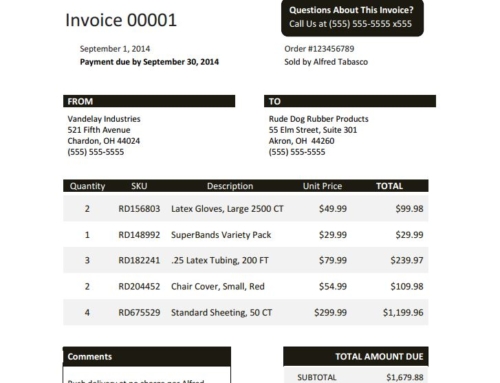WHAT IS THE FAIR CREDIT BILLING ACT?
The Fair Credit Billing Act affects invoice disputes in the accounts receivable department. This law allows consumers to dispute a bill sent to them if they believe a mistake was made. This law was created to protect consumers from being held liable for charges which are incorrect or for services you didn’t accept or agree on. For this reason, accounts receivable departments need to be aware of this law in order to guarantee they can comply and collect as much as what was owed to them. There are certain important dates and facts that can affect exactly how much you will collect in the end.
WHAT TYPES OF DISPUTES ARE COVERED?
The Fair Credit Billing Act only relates to certain types of billing errors. A customer does not get certain protections from the Fair Credit Billing Act for damaged goods or disputes on the quality of the product or service. The Fair Credit Billing Act covers:
- Unauthorized charges
- Charges that list the wrong date or amount
- Mathematical errors
- Failure to send the invoice to the correct address
WHAT YOU MUST KNOW ABOUT THE FAIR CREDIT BILLING ACT
There is a certain time line you must follow in order to take advantage of the law and collect as much as possible. The law requires that a customer notify you of the error within 60 day after you mailed the bill with the error. There are two actions you must take in order to collect what is owed to you, or the consumer automatically does not have to pay up to $50 of the bill.
- You must send a written letter acknowledging the consumer’s complaint to the consumer within 30 days.
- You must resolve the dispute within 90 days after conducting an investigation into the issue.
Even if the bill is correct, but you failed to acknowledge the dispute on time, the customer will not have to pay up to $50.
During the time that the bill is in dispute, the Fair Credit Billing Act requires that you may not charge interest on the payment during this time. Furthermore, you may not report delinquency to credit bureaus. If you do take action such as these, the customer automatically receives the $50 credit.
The Fair Credit Billing Act is extremely important for an accounts receivable professional to know because it can affect whether you collect on the full invoice or not. If you simply are unaware of these dates and caveats of the law, you may forfeit your ability to collect even on a correct bill.




